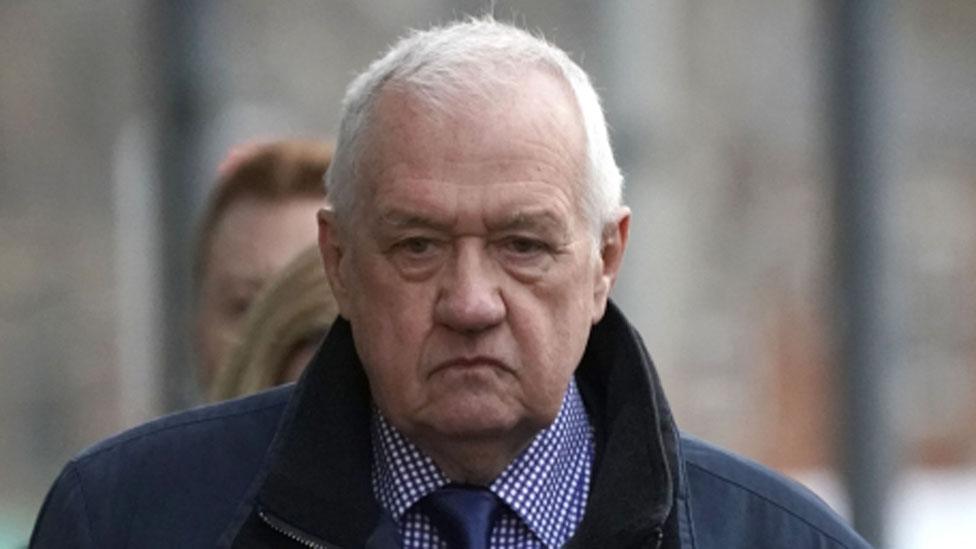Hillsborough fans 'begged police to save them'
- Published
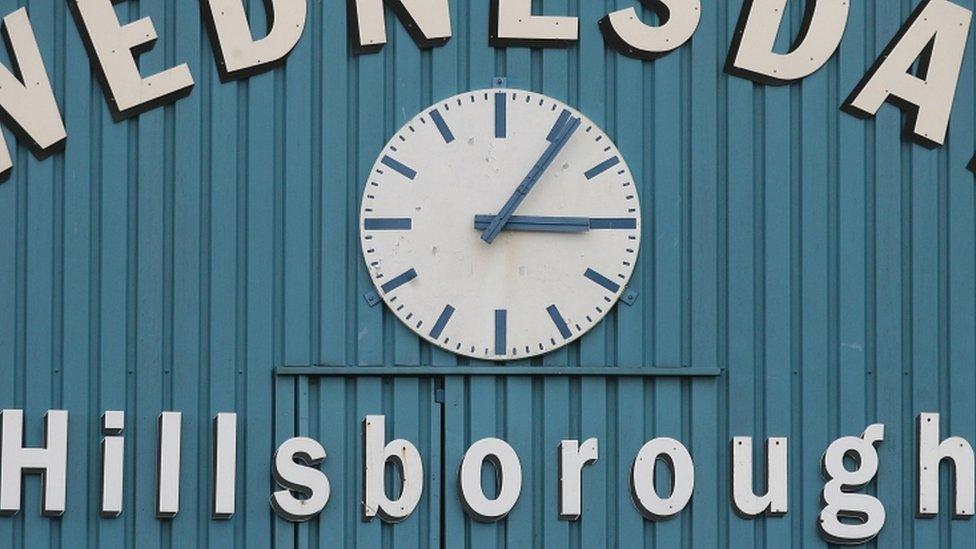
Ninety-six people died in the 1989 Hillsborough disaster
Fans caught in a deadly crush during the Hillsborough disaster begged police to save their lives, a retired officer has told a court.
Alan Ramsden told jurors he and his fellow officers were unable to help supporters trapped behind a wire fence.
He told Preston Crown Court he would "never forget those young faces" of Liverpool fans "pleading" for rescue.
Match commander David Duckenfield, 74, of Ferndown, Dorset, denies the gross negligence manslaughter of 95 fans.
All died as the result of a crush during the 1989 FA Cup semi-final between Liverpool and Nottingham Forest.
Giving evidence, former constable Mr Ramsden said he was with other officers escorting Liverpool fans to the Sheffield Wednesday ground before the match.
He said he was expecting a "riotous" group, but "there was no singing or chanting" and he recalled supporters "having a chat" with officers.
'No sign of life'
Mr Ramsden said he was approached by a "young fan" who pushed and dragged him towards the crush on the terraces, saying: "It's terrible in there. People are dying. People are dead."
"I didn't believe it but he cajoled me. Dragged me to make me look," he said.
Ten minutes before the 3pm kick-off, Mr Ramsden said Liverpool fans began to climb over the turnstiles to escape the crush that had built up.
He said an inspector was stood on top of a wall, reaching down and lifting children out of the crowd, and using a megaphone to shout: "Liverpool supporters, please do not push."
Becoming emotional as he recalled the disaster, he said: "As I approached the Leppings Lane end, I'll never forget. I'll never forget those young faces.
"The wire mesh. Pleading with us to rescue them, and we couldn't. I was shocked, traumatised, pulling at the wire."
Mr Ramsden said he tried to help one stricken fan laid "motionless" on the perimeter by placing a resuscitation device in his mouth.
"I went over to him, started putting him in the recovery position. There was still no sign of life," he said.
"I placed the Brook airway in his mouth. I don't know if it touched the roof of his mouth but he took a deep intake of breath and I put him in the recovery position.
"I believe he said his name was Kevin."
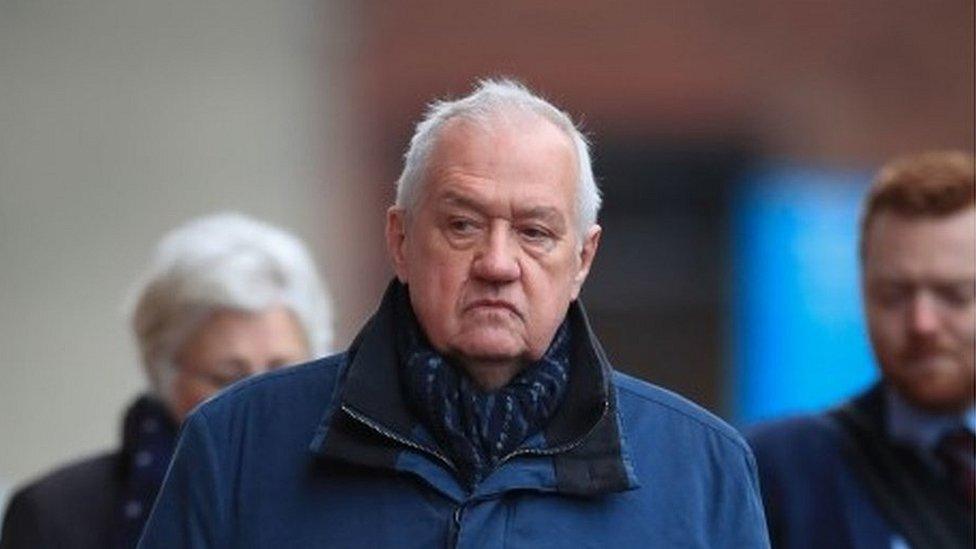
Former match commander David Duckenfield denies gross negligence manslaughter
Former South Yorkshire officer Mr Ramsden said he policed matches at the ground in 1987, 88 and 89.
He told the court pre-match briefings led by Mr Duckenfield's predecessor Brian Mole were "much clearer" than those led by the defendant in 1989.
'Chaos'
There was a lack of a police cordon outside the Leppings Lane end in 1989 - something which had been in place in previous years - he said.
He also said there "was no definite order of what to do" outside the turnstiles, where fans amassed before the match.
He added: "Even before we went onto the pitch, I felt there was nothing much we could do to help. We were useless, we were not fulfilling any function at all. We were just part of the crowd."
Liverpool fan Geoffrey Bridson, from Skelmersdale, Lancashire, told the court the situation outside the ground on the day of the disaster was "chaos" and there was no queuing.
After becoming separated from two friends in pen four of the Leppings Lane terrace, he said he became frightened for his own safety as the crush intensified.
Mr Bridson said he and others became aware they were standing on fans who had fallen, but were unable to make space.
He had travelled to the game with friends including David Rimmer, who died in the crush.
Former Sheffield Wednesday club secretary Graham Mackrell, 69, who is on trial alongside Mr Duckenfield, denies safety breaches relating to the crush at the stadium in April 1989.
The trial continues.

The 96 victims
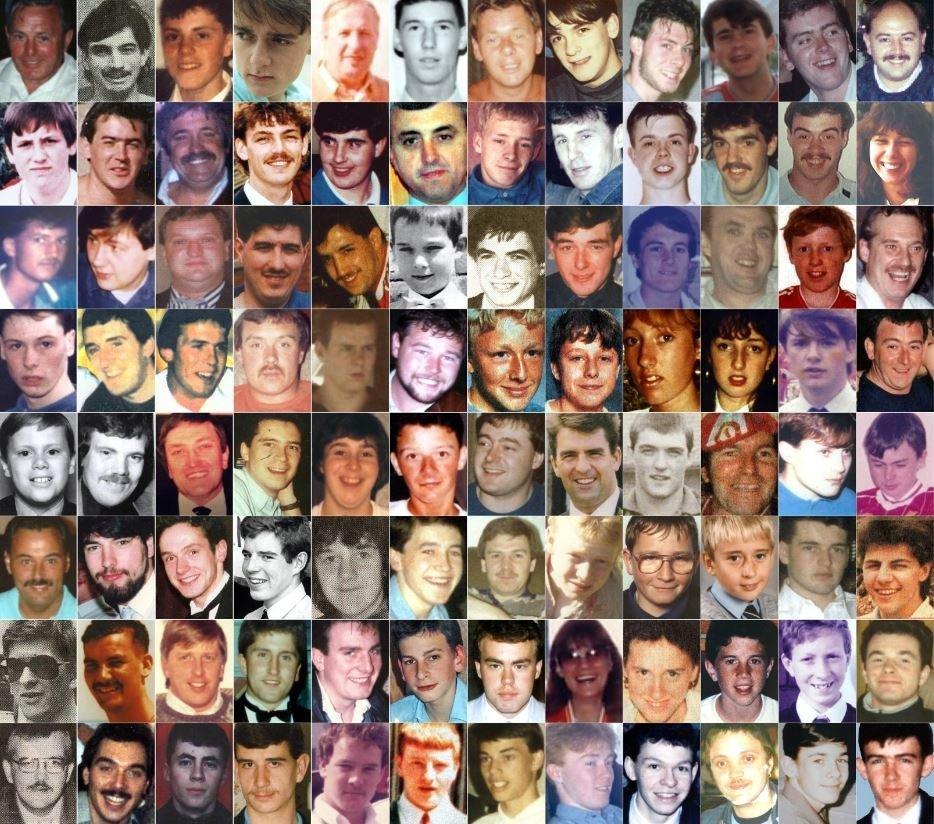
The 96 people who lost their lives in the Hillsborough disaster

Jurors have been told 96 fans were killed as a result of a crush in pens at the Leppings Lane end of the ground.
Of those, 94 died on the same day.
The youngest of the victims had been 10-year-old Jon-Paul Gilhooley.
Lee Nicol, 14, died two days later and Tony Bland, who suffered "terrible brain damage" was in a permanent vegetative state until his death in March 1993, jurors heard.
Under the law at the time, there can be no prosecution for the death of Mr Bland, as he died more than a year and a day after his injuries were caused.

- Published24 January 2019

- Published23 January 2019
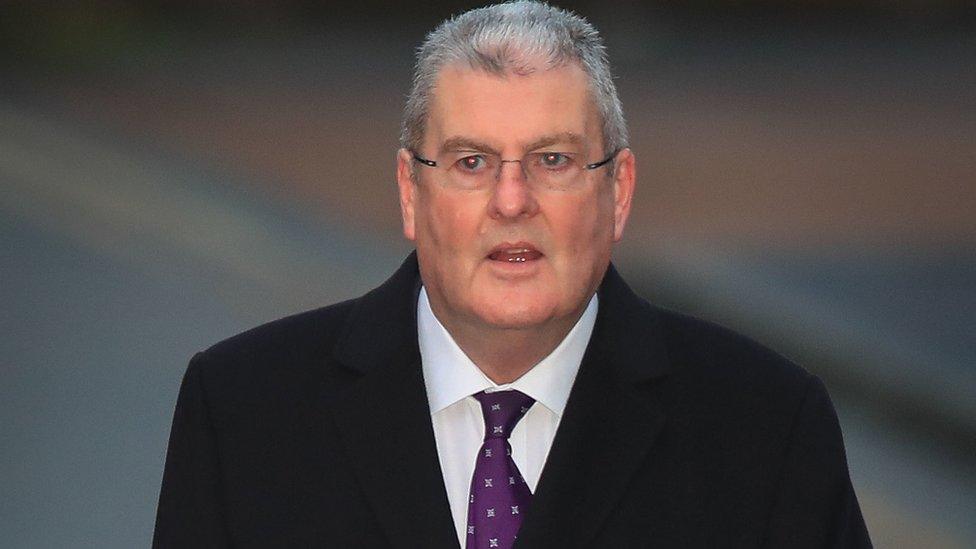
- Published22 January 2019
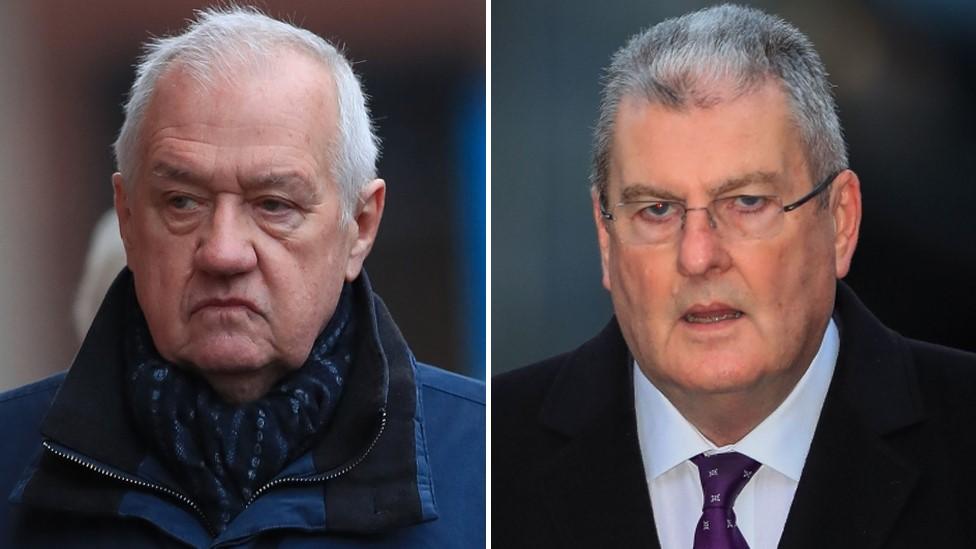
- Published21 January 2019

- Published17 January 2019

- Published16 January 2019
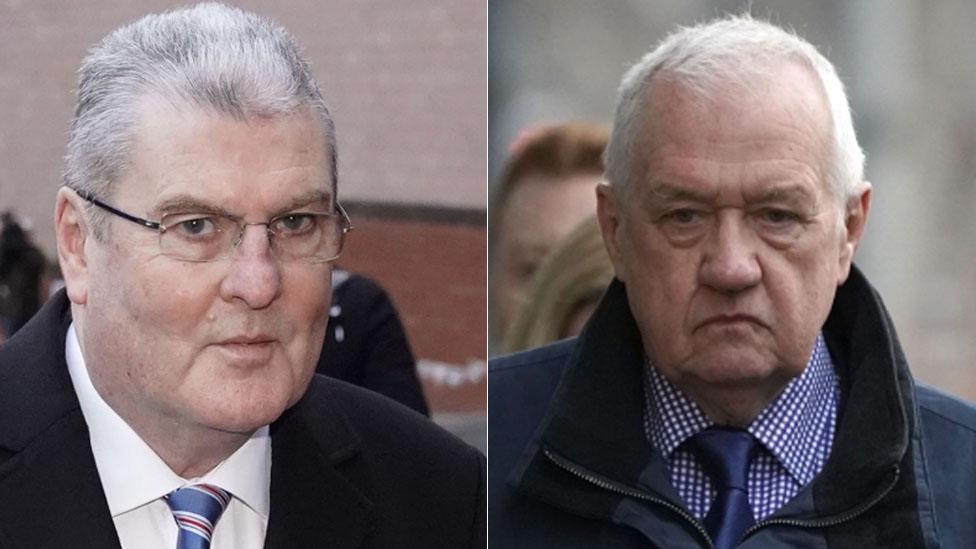
- Published15 January 2019
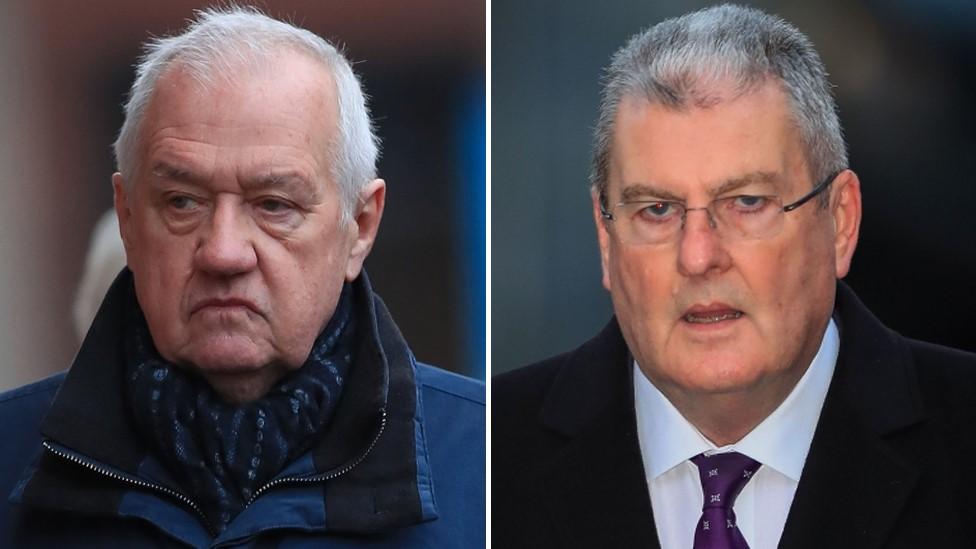
- Published14 January 2019
